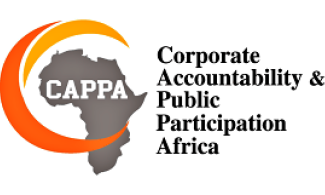
CAPPA stated that funding public education was a social responsibility of the government as such while insisting that any attempt and call to privatise education in Nigeria should be vigorously rejected.
A civil society organisation, the Corporate Accountability and Public Participation Africa (CAPPA) has called for the repeal of the Access to Higher Education Act, 2023, otherwise known as the Students Loan Act, in Nigeria and the conversion of the education bank into a special intervention vehicle for dispensing education grants and bursaries to students in public tertiary institutions.
The organisation made the call during a symposium, held on Friday in Lagos State, South-West Nigeria which was titled: "Will Students Loans Improve Access To Education In Nigeria?"
CAPPA categorically stated that funding public education was a social responsibility of the government as such while insisting that any attempt and call to privatise education in Nigeria should be vigorously rejected.
While commending the efforts of the sponsor of the Act, former Speaker, House of Representatives Femi Gbajabiamila, to expand access to higher education for Nigerian students, the organisation however, noted that the "current income cap, stringent and restrictive guarantor requirements, and uncertainty and vague suggestions around loan disbursement are areas of concern" which it said could potentially undermine the legislation's objective of increasing access to higher education in Nigeria.
CAPPA explained that if these identified provisions of the Act were not repealed, it would risk marginalising certain groups, it described as those from lower socio-economic backgrounds, thereby perpetuating existing inequalities in access to higher education.
The participants in the Symposium noted that issues such as subpar educational infrastructure and learning facilities, lack of research amenities, and inadequate staff remuneration have historically plagued public universities in the country. "These underlying issues must be prioritised and addressed, otherwise, they could render the loan scheme ineffective and ultimately pointless."
In an address at the conference, the Executive Director of CAPPA, Akinbole Olufemi, explained that while the objectives of post-secondary education in Nigeria, according to the country's Education Policy document, aim among other things to contribute to national development through high-level manpower training and to develop the intellectual and physical capacities of individuals to understand the local and external environment, a myriad of problems have continued to undermine these objectives.
Olufemi regretted that these challenges had continued to limit opportunities for citizens to receive the proper value orientation necessary for their survival in a fast-paced world.
"From dilapidated learning structures, insufficient research facilities, corruption at administrative levels, abysmal budget allocation, brain drain, and non-payment of staff allowances to persistent labour disputes- the issues are unending yet the answers to them are not rocket science."
"Against this backdrop, President Bola Tinubu's recent signing of the Students Loans Act, 2025, has caused a flurry of reactions. The policy, on the surface, promises to increase access to public higher education by providing indigent students with interest-free tuition loans. While this intervention may seem like a commendable stride in breaking the chains that bound tertiary education in Nigeria, a deeper inspection of the Act's fine print reveals certain concerns that cannot be dismissed.
"In particular, the loan criteria may paradoxically restrict the very demographic it aims to support. As it stands, the loan only caters to tuition fees even as prospective loan applicants must provide at least two guarantors-civil servants (minimum grade 12), a lawyer with at least 10 years post-call experience, a judicial officer, or a Justice of Peace."
He, however, queried, "How many indigent families have access to this sort of network or even the resources to cater to the sundry charges associated with tertiary education amid the economic downtime and sharp falls in living standards?
"We argue among other observations that this guarantor system serves to solidify existing inequalities. It is also worth mentioning here that despite the rich funding streams articulated for managing the loan, its disbursement is surprisingly premised on the whims of fund availability leading us to wonder if indeed this scheme will improve access to public higher education in Nigeria.”
"Previous governments in the country have established student loan mechanisms in the past to improve access to higher education. Yet, disappointingly, these schemes fell short, failing to deliver expected results or even provide accountability for the funds accumulated. What factors make this current initiative stand apart from past efforts," he questioned.
Meanwhile, after analysing the Students Loan Act, the conference recommended some measures to ensure that the intended objectives of the Act were not lost.
Some of the recommendations are: "These grants can also be devoted to supporting prospective undergraduates applying to study in fields where the country faces a noticeable shortage of professionals.
"These areas may include medicine, the sciences, information, and communication technology (ICT), and engineering among others. By doing this, we would be investing in the future growth and development of these critical sectors.
"To ensure the success of a restructured education bank and its objectives, the development of its operational framework and guidelines must incorporate global best practices observed in the successful implementation of bursary and grant programmes. It must also integrate useful insights first from stakeholders in the education sector, civil society, and experts with proven experience in the subject matter.
"The Federal government should utilise funds drawn from various sources to increase budgetary allocation to education and ensure greater accountability and efficient utilization of the Tertiary Education Trust Fund (TETFUND) and other interventionist programmes in the education sector.
"Policymakers and stakeholders need to bolster girl-child education through targeted funding and awareness campaigns designed to dismantle harmful cultural norms. It's also crucial to ensure that all public institutions are well-equipped with necessary amenities, including clean toilets, running water, and dispensaries for female students. Moreover, cultivating an atmosphere free from sexism, including the elimination of sexist language in policy making, is essential for boosting the enrollment and retention rates of girls in schools," among others.